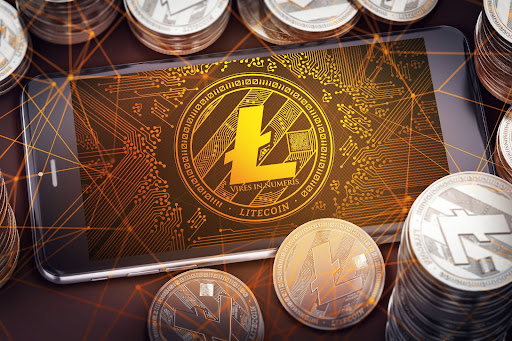Introduction
Exchanging cryptocurrencies can be a confusing process, especially for those who are new to the rapidly evolving digital asset market. While Bitcoin and Ethereum are the most well-known names in the space, other cryptocurrencies like Litecoin (LTC) and Monero (XMR) also have their unique features and use-cases. This article aims to provide a comprehensive guide for anyone looking to exchange ltc for xmr, touching on why someone might want to do so, what platforms offer the service, and best practices to ensure a smooth and secure transaction.
Why Exchange LTC to XMR?
Privacy
Monero offers enhanced privacy features that are not available in Litecoin. All transactions in Monero are confidential and untraceable, making it one of the most secure cryptocurrencies for those concerned about privacy.
Diversification
Portfolio diversification is a cornerstone of sound investment practice. Holding a variety of assets, including both Litecoin and Monero, can help mitigate risk.
Market Opportunities
Different cryptocurrencies have different market cycles. By exchanging LTC to XMR, you can take advantage of potential price movements in the Monero market.
Types of Exchanges
Centralized Exchanges (CEX)
Centralized platforms like Coinbase, Binance, and Kraken are the most commonly used for exchanging cryptocurrencies. These platforms are user-friendly, and they often offer the best liquidity for mainstream cryptocurrencies like LTC and XMR.
Decentralized Exchanges (DEX)
Platforms like Uniswap, Sushiswap, or PancakeSwap allow for more direct control over trades, although their range of supported cryptocurrencies can be more limited.
Peer-to-Peer (P2P)
Websites like LocalBitcoins and LocalMonero facilitate direct transactions between users, providing a platform where people can set their terms and exchange rates.
How to Exchange LTC to XMR
Step 1: Choose the Right Platform
Choose a reputable exchange that supports both Litecoin and Monero.
Step 2: Create an Account
Sign up and undergo the necessary KYC (Know Your Customer) checks, if applicable.
Step 3: Deposit Litecoin
Transfer LTC from your private wallet to the exchange wallet.
Step 4: Execute the Trade
Select LTC and XMR trading pair, then execute the trade based on your preferred terms (market order, limit order, etc.).
Step 5: Transfer Funds
Once the trade is complete, transfer your newly acquired XMR to a secure, private wallet.
Security Measures
Two-Factor Authentication (2FA)
This additional layer of security should always be activated.
Cold Wallet Storage
If you’re not planning on trading the XMR immediately, transfer it to an offline wallet.
Phishing Awareness
Be cautious of unsolicited communications asking for your private keys or passwords.
Transaction Verification
Always double-check wallet addresses and transaction details before confirming a trade.
Costs and Fees
Exchanges usually charge a fee for their services. These can come in various forms:
- Trading Fees: Most exchanges charge a percentage of the trade.
- Withdrawal Fees: Some exchanges may charge for moving your XMR to an external wallet.
- Slippage: Especially in the case of large trades, market orders can suffer from price slippage, resulting in less favorable rates.
Tax Implications
Different countries have various rules regarding the taxation of cryptocurrency transactions. It’s crucial to keep track of your trades and consult with a tax advisor to understand your obligations.
Best Practices
Conduct Small Test Transactions
If you’re new to the exchange or the process, consider conducting a small transaction first to make sure everything goes smoothly.
Market Research
Be aware of the current market conditions for both Litecoin and Monero. Knowing when to trade can make a significant difference in the assets you receive.
Use Trusted Networks
Always conduct transactions over a secure and trusted network. Never use public WiFi for transactions involving cryptocurrencies.
FAQs
- Is it possible to reverse an LTC to XMR exchange?
Generally, cryptocurrency transactions are irreversible. Once confirmed on the blockchain, they cannot be undone.
- Can I do an LTC to XMR swap anonymously?
While Monero is built for privacy, the level of anonymity largely depends on the platform you use for the exchange.
- How fast are LTC to XMR exchanges?
Transaction speed can vary based on several factors, including network congestion and the type of exchange used.
Conclusion
Exchanging Litecoin for Monero involves several steps, from choosing the right platform to understanding the security measures and tax implications of your actions. This guide has aimed to cover all of these aspects in detail, providing you with the knowledge you need to make an informed decision.
Both Litecoin and Monero have their advantages and drawbacks, and the decision to exchange one for the other can depend on various factors like investment goals, privacy concerns, and market opportunities. By following the guidelines and best practices outlined above, you can ensure that your LTC to XMR exchange is as smooth and secure as possible. Always remember to conduct your research and exercise caution, as the volatile nature of cryptocurrencies carries both potential rewards and risks.
